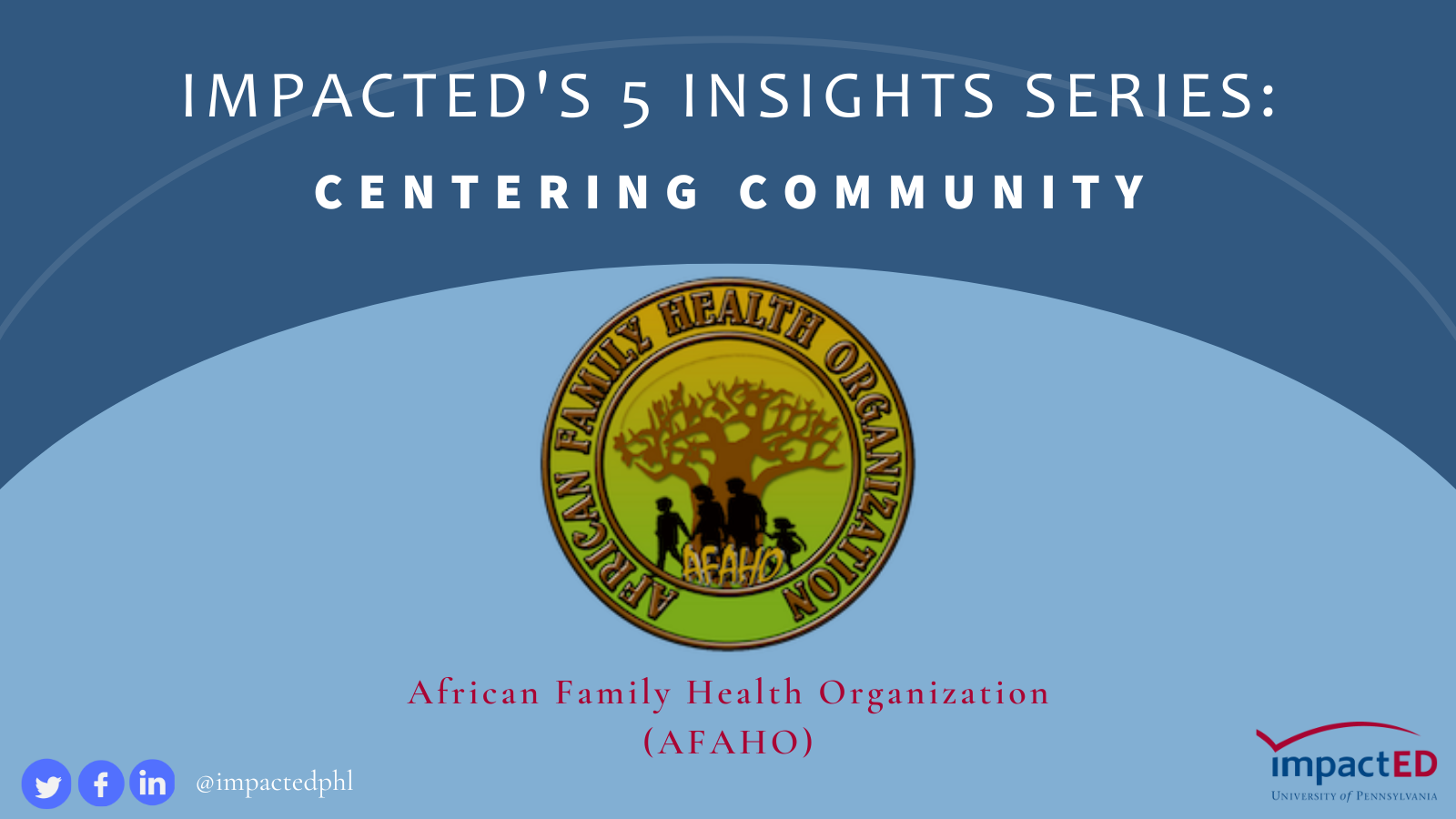
“[Our cultural health navigators] are really the ones doing the work out in the community, they’ve built this immense trust in the community over time and see and understand nuances, challenges, strengths of the community that external evaluators or even I as a manager may not be so aware of or attuned to.”
Dianne Uwayo
Health Programs Manager, AFAHO
Ultimately, accelerating social change requires centering the individuals who have unique insights into the challenges their communities face at each stage of the process—from design to implementation to evaluation.
Historically, the African Caribbean Immigrant and Refugee (ACIR) population has experienced high levels of distrust, misinformation spread on social media, a lack of reliable resources available in their languages, and very little accurate information from community-trusted sources. Given these longstanding challenges and the deep-seated distrust of vaccines in many African countries, ImpactED partnered with the African Family Health Organization (AFAHO) on a Vaccine Equity Project. We aimed to understand—and address—the root causes of vaccine hesitancy in the ACIR community, particularly in communities that are harder to reach. The goal of the project was to connect the ACIR community with stronger avenues to achieve holistic health deliverables and bridge the gap between the ACIR community, community organizations, and healthcare institutions to build a holistic health culture within Philadelphia and surrounding areas.
Below are 3 important tips and three helpful resources that will support your organization to center the community you serve:
- Deepen your understanding of the communities you serve. As a reaction to COVID-19 as a public health crisis, this project required extensive reach within a short timeline and forced us to let go of “traditional” evaluation approaches. The project team pushed back on the project scope and developed project activities centered around intentional community engagement, such as focus groups led and facilitated by the cultural health navigators instead of sending external evaluators to collect data. The results of these approaches demonstrated that this project’s success was fundamentally rooted in long-term relationship building and trust. Ask yourself: What does your community value? What are their motivations for their current involvement?
- Layer your outreach and engagement tactics to meet the needs of different communities. The Vaccine Equity Project team built trust with the communities they engaged by initially focusing on the communities’ needs and experiences. Rather than diving into discussing perceptions of vaccines, they again built in time for relationship-building and involved trusted community leaders in this process. Being flexible was critical to the success of this tactic: taking time to build trust upfront pushed back the project timeline and expanded the project focus beyond solely vaccines, but the impact was well worth those administrative adjustments. Ask yourself: How can you tailor your engagement strategies to meet the communities you serve where they are? Can you offer a range of different ways to engage that respond to varying needs and preferences?
- Clarify your decision-making processes and consider how you can shift power. For this initiative, ImpactED evaluators did not take the lead on data collection. Instead, we tried our best to be present with the AFAHO team and community ambassadors in different spaces to witness and support them as they facilitated conversations and engagement with members of the community. This project revealed that the ambassador approach—for example, building relationships with trusted community leaders and cultural navigators—was essential to successful marketing and outreach efforts. Ask yourself: How might you democratize decision-making and involve the individuals and communities you serve in your planning and evaluation processes? What power will they have to inform, influence, or make decisions?
Below are 3 tools to support your organization in getting started:
- Doing Evaluation in Service of Racial Equity - This Kellogg Foundation three-part series of practice guides show how to incorporate racial equity as a core value into evaluation.
- The Spectrum of Community Engagement to Ownership - Use this Facilitating Power tool to assess your current community engagement efforts and set goals for how those efforts can advance towards greater community ownership.
- Why Am I Always Being Researched? - This Chicago Beyond guidebook aims to help community organizations, researchers, and funders shift power dynamics and equitably uncover knowledge together.
We want to hear from you! How is your organization thinking about centering the community you serve in your work? Email us at impact-ed@sas.upenn.edu or tag us on social media (@ImpactEDphl) to share your perspectives and learnings.
*This blog post is a part of our 5 Insight Series. Each month we’ll be diving deeper into one insight from our 5 Insights for Accelerating Social Change report and sharing additional examples and actionable strategies to support you and your organization. If your organization is wrestling with similar issues and interested in partnering with ImpactED, please reach out to us at impact-ed@sas.upenn.edu.



